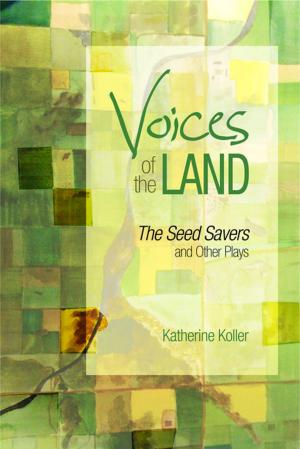Speaking Power to Truth
Digital Discourse and the Public Intellectual
Nonfiction, Social & Cultural Studies, Political Science, Government, Public Policy, Social Science, Sociology, Reference & Language, Reference| Author: | ISBN: | 9781771990356 | |
| Publisher: | Athabasca University Press | Publication: | November 20, 2015 |
| Imprint: | AU Press | Language: | English |
| Author: | |
| ISBN: | 9781771990356 |
| Publisher: | Athabasca University Press |
| Publication: | November 20, 2015 |
| Imprint: | AU Press |
| Language: | English |
Online discourse has created a new media environment for contributions to public life, one that challenges the social significance of the role of public intellectuals—intellectuals who, whether by choice or by circumstance, offer commentary on issues of the day. The value of such commentary is rooted in the assumption that, by virtue of their training and experience, intellectuals possess knowledge—that they understand what constitutes knowledge with respect to a particular topic, are able to distinguish it from mere opinion, and are in a position to define its relevance in different contexts. When intellectuals comment on matters of public concern, they are accordingly presumed to speak truth, whether they are writing books or op-ed columns or appearing as guests on radio and television news programs. At the same time, with increasing frequency, discourse on public life is taking place online. This new digital environment is characterized by abundance—an abundance of speakers, discussion, and access. But has this abundance of discourse—this democratization of knowledge, as some describe it—brought with it a corresponding increase in truth?
Casting doubt on the assertion that online discourse, with its proliferation of voices, will somehow yield collective wisdom, Speaking Power to Truth raises concerns that this wealth of digitally enabled commentary is, in fact, too often bereft of the hallmarks of intellectual discourse: an epistemological framework and the provision of evidence to substantiate claims. Instead, the pursuit of truth finds itself in competition with the quest for public reputation, access to influence, and enhanced visibility. But as knowledge is drawn into the orbit of power, and as the line between knowledge and opinion is blurred, what role will the public intellectual play in the promotion and nurturing of democratic processes and goals? In exploring the implications of the digital transition, the contributors to Speaking Power to Truth provide both empirical evidence of, and philosophical reflection on, the current and future role of the public intellectual in a technologically mediated public sphere.
With contributions by Karim-Aly Kassam, Barrry Cooper, Jacob G. Foster, Richard Hawkins, Michael Keren, Boaz Miller, Liz Pirnie, and Eleanor Townsley.
Online discourse has created a new media environment for contributions to public life, one that challenges the social significance of the role of public intellectuals—intellectuals who, whether by choice or by circumstance, offer commentary on issues of the day. The value of such commentary is rooted in the assumption that, by virtue of their training and experience, intellectuals possess knowledge—that they understand what constitutes knowledge with respect to a particular topic, are able to distinguish it from mere opinion, and are in a position to define its relevance in different contexts. When intellectuals comment on matters of public concern, they are accordingly presumed to speak truth, whether they are writing books or op-ed columns or appearing as guests on radio and television news programs. At the same time, with increasing frequency, discourse on public life is taking place online. This new digital environment is characterized by abundance—an abundance of speakers, discussion, and access. But has this abundance of discourse—this democratization of knowledge, as some describe it—brought with it a corresponding increase in truth?
Casting doubt on the assertion that online discourse, with its proliferation of voices, will somehow yield collective wisdom, Speaking Power to Truth raises concerns that this wealth of digitally enabled commentary is, in fact, too often bereft of the hallmarks of intellectual discourse: an epistemological framework and the provision of evidence to substantiate claims. Instead, the pursuit of truth finds itself in competition with the quest for public reputation, access to influence, and enhanced visibility. But as knowledge is drawn into the orbit of power, and as the line between knowledge and opinion is blurred, what role will the public intellectual play in the promotion and nurturing of democratic processes and goals? In exploring the implications of the digital transition, the contributors to Speaking Power to Truth provide both empirical evidence of, and philosophical reflection on, the current and future role of the public intellectual in a technologically mediated public sphere.
With contributions by Karim-Aly Kassam, Barrry Cooper, Jacob G. Foster, Richard Hawkins, Michael Keren, Boaz Miller, Liz Pirnie, and Eleanor Townsley.















